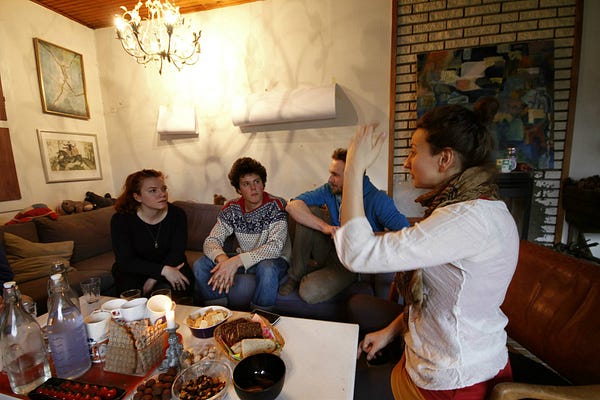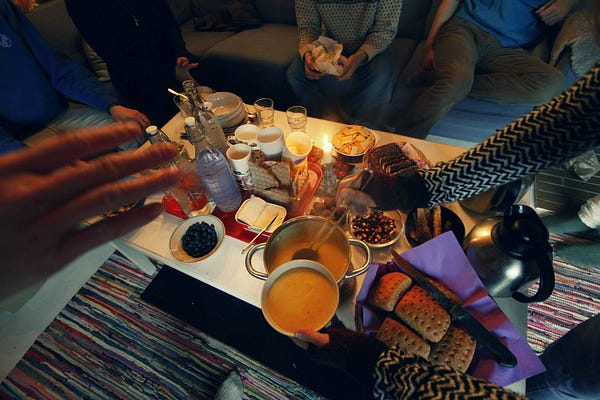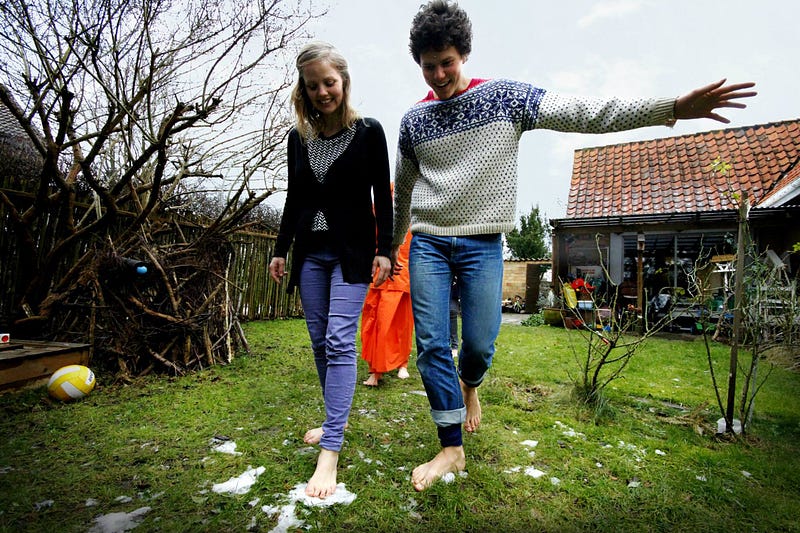One of the very early Hoffice events in Sweden. Photo by Amrit Daniel Forss.
It has been said that we’re living through “The Age of Loneliness.” Loneliness is “epidemic” among young adults, and even more common among the elderly, with some reporting that the numbers of those feeling lonely and isolated have doubled since 1980.
At the same time, technology is making it possible for more and more people to work from home. Working from home has many benefits: it can save money for employers, including small businesses and non-profits; it can provide employees with more freedom, and refuge from negative work environments; it can even increase productivity, studies show.
It can also lead to spending a lot more time alone.
While feelings of loneliness and isolation lead to depression, anxiety and a whole assortment of ill-health effects, simple face-to-face human interaction is one of the best and easiest ways to increase human happiness. Similarly, people who feel they have supportive and reliable communities are less likely to feel lonely.

This is why “hofficing” is one of those very simple actions that can actually make a big difference. Swedish psychologist Christofer Franzen came up with the idea for hoffices in 2014, when he realized that, though he was giving lectures on the importance of collective intelligence, he was spending most of his time working alone in his house. So he started gathering friends to organize group work sessions in people’s homes and apartments. He called this kind of gathering “hofficing.”
At first, hoffices were organized by word of mouth — just a few friends gathering in someone’s living room. But Franzen noticed right away that the hoffices created real a sense of community, and people were excited to participate.
Today, the Hoffice project has a website which anyone can visit to find a nearby hoffice, or even start one up (each group has its own individual Facebook page where meet-ups are scheduled and plans discussed). Though hofficing is still most popular in Sweden, groups can be found all over the world. (Because there is no system of background checks and everyone is welcome to join, hoffice projects have faced more challenges in areas with more fear of crime.)


Lunchtime at the Hoffice
The Hoffice website also provides guidance for hofficing hosts and facilitators, suggesting activities, ways to plan meals, and advice for mapping out the day. The host and the facilitator can be the same person, though they don’t necessarily have to be. Hoffice advises that the facilitator begin each day with a moment of mindfulness, and an opportunity for everyone to set daily goals. People are then encouraged to work in forty-five minute sessions, with breaks in between for coffee, chats, quick stretching and exercise routines, and even massages. None of these activities, however, are mandatory, and those who wish to work through breaks are encouraged to do so. Sometimes, everyone brings their own lunch, but at other times lunch is potluck-style, or even cooked as a group. Further ideas are being explored to increase the value of the hoffice experience — ideas for matching up people with relevant skills, or providing more opportunities for job seekers to make connections.

Taking a break to walk in the snow — a great way to keep awake while Hofficing.
For now, people seem very pleased with their experiments in hofficing, reporting feelings of happiness and inspiration. In Stockholm the practice has caught on like wildfire, with nearly 2,000 people hofficing regularly. We hope that anyone who works from home will consider joining or starting their own hoffice community!
To learn more, visit: http://hoffice.nu/en/.